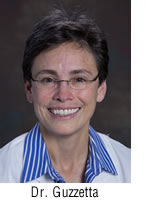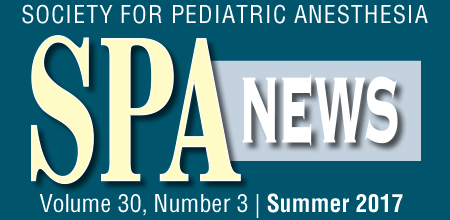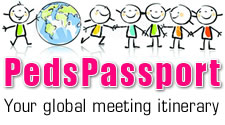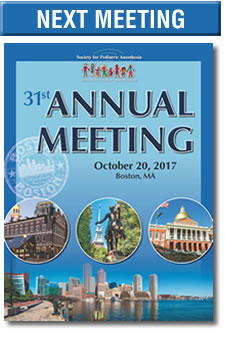Update from the Congenital Cardiac Anesthesia Society
 By Nina Guzzetta, MD, FAAP
By Nina Guzzetta, MD, FAAP
Emory University, Atlanta
President, CCAS
2017 is an exciting time for the Congenital Cardiac Anesthesia Society (CCAS) and I’d like to share with you why. The CCAS was founded as a section within the Society for Pediatric Anesthesia (SPA) on October 19, 2005, and we are fast approaching our 12 year anniversary. Over the years, CCAS has grown significantly. In 2005, our initial membership consisted of 113 active members. Today, CCAS has over 1,300 members! On behalf of the CCAS membership and Board of Directors, I would like to extend a sincere ‘thank you’ to the SPA for their continued support and active involvement in the success of CCAS.
The early part of this century marked a time of rapid advancement of highly specialized knowledge within the field of congenital cardiac anesthesia and a substantial increase in the numbers of patients with congenital heart disease (CHD) presenting for cardiac surgery. In response, several key leaders from the major congenital heart disease programs originated the idea for a new society to promote the subspecialty of congenital cardiac anesthesia and to provide education and training. Thus, the mission of the CCAS was developed: “to improve the perioperative care and outcomes, and facilitate technological advances in therapy for newborns, infants, children and adults with congenital heart disease requiring anesthesia”.
Furthermore, it was designated that this mission would be accomplished through:
- Education,
- Collaboration of members,
- Coordination with other societies having like-minded goals and objectives,
- Research,
- Facilitating a multi-institutional database,
- Training guidelines, and
- advocacy.
Over the past 12 years, our members have advanced this mission at a rapid pace. CCAS is involved in a number of organizational and educational initiatives intended to enhance the practice and science of congenital cardiac anesthesia.
In March, and in junction with SPA-American Academic of Pediatrics (AAP) Pediatric Anesthesiology 2017 in Austin, Texas, the CCAS completed our 11th Annual Meeting. We had 246 attendees and 12 sponsors and exhibitors. The Program Chair, Dr. Scott Walker, and Co-Chairs, Drs. Luis Zabala and Kirsten Odegard, staged an outstanding program to commemorate the 10th anniversary of our first annual meeting which was held in 2007.
This year’s meeting followed the same successful format of past programs with an exciting new addition of morning PBLDs. The opening session, "Basic Science and Clinical Application", consisted of two highly innovative lectures: one on the application of modern genetic technology to congenital heart disease and the other on a novel cavopulmonary assist device for the Fontan circulation. The other morning sessions included our traditional “Practice Updates in Congenital Cardiac Anesthesia” and “Focus on a Lesion”.
After lunch, the top three scoring abstract submissions were orally presented and followed by our first-ever session on “Thoracic Surgery in Congenital Heart Disease”. Next, the meeting continued with concurrent sessions where attendees could choose from one of five workshops or attend an interactive “Ask the Experts” panel. To end the day, we re-gathered for “Professor Poster Rounds” where all accepted abstracts were presented and discussed in informal groups. I would like to thank Drs. Walker, Zabala and Odegard for their hard work and dedication to making this year’s meeting a success.
Also, at the Annual Meeting, a new Board of Directors was inducted: Nina Guzzetta, MD (President), Wanda Miller-Hance, MD (Vice-President), Mark Twite, (Secretary/Treasurer) and Directors, Jeremy Geiduschek, MD, Gregory Latham, MD, Viviane Nasr, MD, Susan Nicholson, MD, James Spaeth, MD, David Vener, MD, Luis Zabala, MD. We look forward to working with each other and the SPA leadership to support our membership and advance our mission.
The CCAS has been involved in several collaborative educational events with like-minded Societies. This April in Orlando, Florida, the CCAS hosted a session at the Society for Cardiovascular Anesthesiologists 39th Annual Meeting entitled “Update on Pediatric Cardiac Anesthesiology”. Dr. Lisa Wise-Faberowski organized an excellent and informative session reviewing hypoplastic left heart syndrome. The invited speakers were CCAS members plus one of our surgical colleagues.
In addition, for the first time, the CCAS was a co-sponsor of the 7th World Congress of Pediatric Cardiology and Cardiac Surgery (WCPCCS) in Barcelona, Spain, July 16‐22, 2017. Cardiologists, surgeons, intensivists, anesthesiologists and other allied health providers from around the world who care for patients with CHD attended. CCAS organized a dedicated two hour session on congenital cardiac anesthesia for each day of the Congress as well as a CCAS sponsored lunch symposium. The top five trainee abstracts from our 2017 Annual Meeting wwere presented during the scientific poster session. The presenting trainees received free registration and a stipend towards their accommodations courtesy of the WCPCCS. This was an exciting collaboration for our Society, and we’re already planning the CCAS contribution to the next WCPCCS in 2021.
The CCAS is continually in search of effective and interesting ways to promote our educational mission. Thanks to the efforts of our Communications Committee, the website allows access to a number of innovative and enduring educational materials including a “Question of the Week”, “Poll of the Month”, “Echo Tutorials”, and a lecture series for several of the more common congenital cardiac lesions and surgical procedures. The newsletter regularly posts reviews and commentaries on important research articles pertinent to the specialty. In addition, CCAS provides a national and international forum for networking with other anesthesiologists interested in the care of patients with CHD, from infancy through adulthood.
We have recently added a new tab to our home page, ‘For Patients & Parents’. This was the result of our alliance with the Pediatric Congenital Heart Association (PCHA), an advocacy group for children with CHD and their families. They contacted us requesting a brochure to address frequently asked questions by patients and parents regarding cardiac anesthesia care. Several of our members got to work and created an easily understandable, yet thorough, document addressing commonly asked questions prior to surgery. The brochure is available for download from the website and can be adapted for use by your hospital. Please take a moment to visit the CCAS website at www.ccasociety.org.
Since our inception, the Society of Thoracic Surgery (STS)-CCAS Database has been an important part of the CCAS mission. Because of the infrequency of anesthesia-related events and the variability of practice between institutions caring for children with CHD, it has been a priority of the CCAS to establish a registry for congenital cardiac anesthesia. In 2009, under the leadership of Dr. David Vener, a working group from the CCAS developed a multisite registry for congenital cardiac anesthesia data to be incorporated into the STS database.
Currently, this registry includes information on the anesthetic care of children with CHD from 50 participating institutions in North America, adding approximately 19,000 patient encounters annually with over 100,000 entries to date. Specific data queries of the entire CCAS-STS database are vetted by the Database Committee and then forwarded to the STS. Institutional access to the database is available to each participating institution. Both offer unique opportunities for quality and outcomes information and research.
I am honored to announce the establishment of Dr. Dolly D. Hansen Educational Fund within the CCAS. Dr. Hansen practiced pediatric anesthesia at Boston Children’s Hospital for over 30 years and was a true pioneer in congenital cardiac anesthesia. During her extensive career, she fondly became known as “the Mother of Pediatric Cardiac Anesthesia”. She was the first anesthesiologist to routinely provide anesthesia to children undergoing cardiac surgery with deep hypothermic circulatory arrest, and administered anesthesia for the first Norwood Stage 1 procedure. Dr. Hansen was also an astute observer of physiology. She noted that blunting of the surgical stress response in infants during cardiac surgery was essential for their survival and published extensively in that area. Upon her retirement, Dr. Hansen graciously donated funds for an endowed chair at Boston Children’s Hospital.
Thanks to Boston Children’s Hospital, the CCAS now holds a portion of these funds. Our goal is to utilize the funds in accordance with Dr. Hansen’s wishes - to provide education to generations of professionals caring for patients with CHD and to conduct research aimed at improving the outcomes, and consequently the lives, of patients with CHD. The Dr. Dolly D. Hansen Educational Fund is open to ongoing contributions; please click here to make your donation.
The CCAS was originally established as a section of the SPA in order to provide a resource for anesthesia practitioners caring for both children and adults with CHD as the complexities of our subspecialty rapidly advanced. Twelve years later, with the help and support of the SPA, CCAS is poised as a valuable resource for education, collaboration, and research to improve the quality of care and outcomes for patients with CHD. It is a true privilege to serve as President of the CCAS, and I hope that you share my enthusiasm for the direction and progress of our Society.






